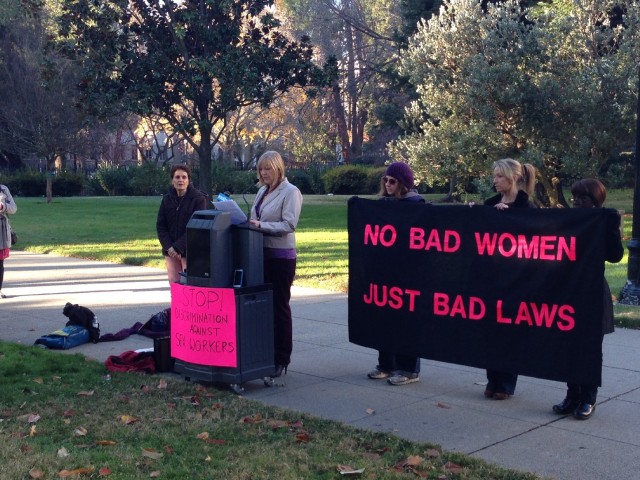
If you’re the victim of a violent crime, you can apply for money from the California Victim Compensation and Government Claims Board. The grant can be used to pay for things like treatment and medical equipment.
But up until the board repealed a controversial rule today, prostitutes assaulted on the job were not eligible for that money. The board’s rules denied funding to a crime victim if an assault, rape or other crime was “a direct result of … activity related to prostitution.”
“What (the rule) says is that sex workers are asking for it,” said Rachel West. “That sex workers are asking for rape. That the rape of sex workers is not as serious as the rape of other women, and that sex workers are not deserving of support.”
West is with the United States Prostitutes Collective. She was one of several sex workers and sex worker advocates who urged the board to repeal the prostitution language during a Thursday morning meeting in Sacramento.
The board did just that, though because California’s formal rule-making process takes a long time to run its course, the change won’t be official until next spring. “Frankly, rape is rape,” Chairwoman Marybel Batjer said after the vote. “Period. There is no qualifier on it.”